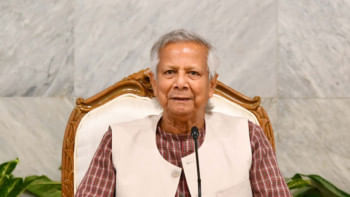India-Pakistan deal
THE signing of a deal by India and Pakistan on an exchange of prisoners augurs well for peace and stability in South Asia. The fact that such a deal has been agreed upon by visiting Indian Foreign Minister Pranab Mukherjee and his Pakistani counterpart Shah Mehmood Qureshi reflects somewhat a new spirit in relations between the two countries in light of a new, elected government having taken over in Islamabad. Although it is too early to say if indeed a breakthrough will be achieved in relations, there are fairly good reasons to think that a change in attitude between the leaders of the two nations is possible.
The signs of such a probability of change are of course there. The two sides have scheduled their next meeting in July, which will certainly be a good new step in confidence building. With such measures as transport links and nuclear safeguards already in place, the deal on a prisoner swap can only reinforce the ongoing process of cooperation. With a history of political acrimony and military conflict behind them, there is today a paramount need for a change in the mindsets of the leadership in Delhi and Islamabad. Obviously, such issues as Kashmir remain unresolved. But on other matters such as various levels of people-to-people cooperation, tourism, media interaction, et al, quite an appreciable degree of progress has been achieved. Very significantly, the growing threat of terror is also a factor that underlines the need for closer cooperation between the two sides. In recent years, a spate of terrorist acts (the latest incident being the Jaipur killings) saw distrust growing between the two countries. And with terrorism having become a cross border affair, the leadership in India and Pakistan cannot but work together to combat the menace.
That India and Pakistan will achieve a miracle in their relations is to place expectations rather high on their leaders, given the long legacy of mistrust between them. However, it is also noteworthy that cooperation between them has been more pronounced every time an elected civilian government has operated in Islamabad. At this point, it is reasonable to suggest that expanding cooperation between two big neighbours of South Asia could have a salubrious bearing on the entire SAARC process.

 For all latest news, follow The Daily Star's Google News channel.
For all latest news, follow The Daily Star's Google News channel. 



Comments